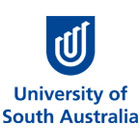Bachelor of Business (Human Resource Management)
Bachelor of Business (Human Resource Management)
The degree starts with core courses in business. These will give you a solid grasp of business fundamentals such as economics, accounting and business intelligence. You can also gain valuable insight and career skills while you study with advanced career-focused electives and internships in industry. In your human resource management…
Categories
COURSE DESCRIPTION
The degree starts with core courses in business. These will give you a solid grasp of business fundamentals such as economics, accounting and business intelligence. You can also gain valuable insight and career skills while you study with advanced career-focused electives and internships in industry.
In your human resource management specialisation you’ll focus on people management, studying areas such as:
- training and development
- performance and compensation management
- employment relations
- employment law
Careers to consider:
- Human resources adviser: recruiting, training and developing staff; approving job descriptions and advertisements; advising on employment law and organisational policies and procedures; negotiating salaries, contracts, working conditions or redundancy packages
- Human resources manager: designing, organising and implementing human resources strategies, policies and programs; overseeing recruitment, performance management, and learning and development
- Employment relations consultant: providing a consultancy service and representation on industrial and workplace relations matters; actively contributing to the development and implementation of industrial relations strategies.
- Learning and development officer: liaising with managers and interviewing employees to identify and assess training and development needs; delivering and overseeing training; monitoring progress made through training programs; designing training programs
- Organisational change consultant: working with key executives develop strategies and frameworks; planning, communicating and executing process improvements; facilitating a smooth transition through the change process
- People and culture manager: overseeing day to day people and culture activities; talent acquisition; employee relations and training and development; implementing and executing strategic employee engagement initiatives
- Recruitment consultant: working on behalf of companies to source candidates for job vacancies; analysing and understanding job specifications; conducting keyword searches on internal recruitment databases, assessing CVs online using various job websites, or actively ‘headhunting’ senior professionals through independent research
- Work, health and safety officer: supporting the development of OHS policies and programs; advising and instructing on various safety-related topics; conducting risk assessment and enforcing preventative measures; reviewing existing policies and updating according to legislation; organising WHS training
Alternative Pathways:
There are other pathways you can follow to study this degree, including:
SAIBT Diploma of Business – if you complete this two year Diploma, you can apply to enter the 2nd year of this degree
REQUIREMENTS
Applicants are required to meet one of the following criteria with a competitive result, and demonstrate that they fulfil any prerequisite requirements and essential requirements for admission:
Recent secondary education:
Meet any prerequisite requirements with a minimum grade of C- or equivalent and
Complete secondary qualifications equivalent to SACE, or
Complete the International Baccalaureate Diploma with a minimum score of 24 points
or
Higher education study
Complete or partly complete a recognized higher education program at a recognized higher education institution
or
Complete at least four Open Universities Australia (OUA) courses at undergraduate level or above
OR
Vocational Education and Training (VET)
Complete an award from a registered training organization at Certificate IV or above
or
Work and life experience
Hold completed secondary qualifications equivalent to SACE obtained more than 2 years in the past
English language requirements:
IELTS score of 6.0; TOEFL iBT score of 60 with Reading and Writing not less than 18; TOEFL paper-based test (PBT) score of 550 with TWE of 4.5; iBT score of 60 with Reading and Writing not less than 18; Cambridge CAE/CPE score of 169; Pearson’s test of English (Academic) (PTE) score of 50 with Reading and Writing communicative scores not less than 50; CELUSA score of AE4.
EDUCATIONAL INSTITUTION
The University of South Australia is a globally connected and engaged university with industry-informed teaching and research that is inventive and adventurous. Ranked in the world’s top 50 under 50^ and with 100% of assessed research rated at or above world-class*, the University is young, innovative and offers students the chance to gain real-world experience.Focused on life beyond the classroom, the University of South Australia offers a practical approach to teaching and learning. Degrees are designed in partnership with industry, giving students opportunities to gain the latest insights and trends and ensuring they graduate career ready.^Ranked in the World’s Top 50 Under 50 – Ranked #29, 2021 QS Top 50 Universities Aged Under 50 and Ranked #46, 2022 THE Young University Rankings*2018 Excellence in Research for Australia (ERA), 4-digit Fields of Research




